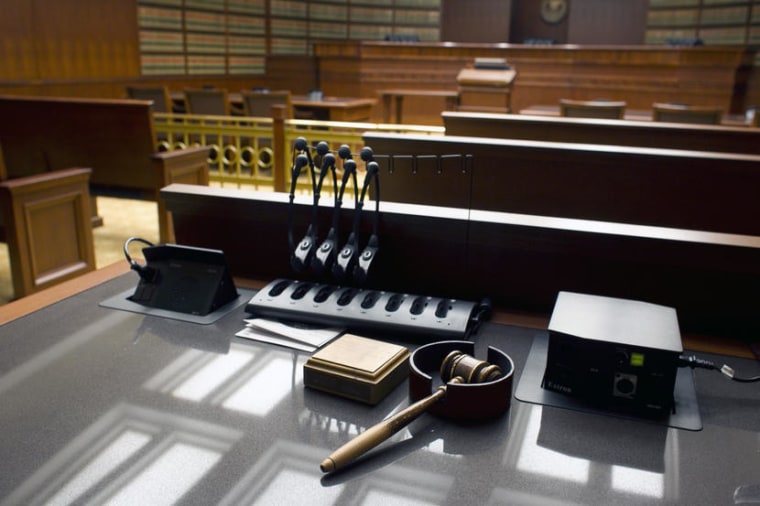When it comes to Donald Trump's efforts to keep his financial records hidden, it's hard not to notice the pattern: the president's lawyers keep fighting in court, and they keep losing. This morning offered the latest in a series of defeats.
A federal appeals court declined Wednesday to block a subpoena from a New York grand jury for several years' worth of President Donald Trump's tax records, a further legal setback in his efforts to keep his returns out of the hands of state prosecutors. A three-judge panel of the Second Circuit Court of Appeals denied an effort by Trump's lawyers to have the subpoena tossed out on the grounds that it was too broad or was politically motivated and issued in bad faith.
"The President's allegations of bad faith fail to raise a plausible inference that the subpoena was issued out of malice or an intent to harass," the court said in its 35-page ruling.
As NBC News' report added, Trump's lawyers are expected to turn to the U.S. Supreme Court -- again -- as part of an effort to block enforcement of the subpoena while they file an appeal.
For those who may need a refresher, when a New York prosecutor's office initially sought Trump's hidden financial records, the Republican's lawyers came up with a novel reason to refuse: the president, they claimed, has "absolute immunity" from effectively every part of the U.S. legal process, leaving him free to ignore subpoenas and investigations.
As regular readers know, this argument was rejected by every court that heard it -- including the U.S. Supreme Court. Indeed, despite the high court's ideological divisions, all nine sitting justices agreed in July that Team Trump's "absolute immunity" claim was absurd.
But while that repudiation wasn't what the president hoped for, the Supreme Court's ruling in Trump v. Vance was only a partial setback: the justices sent the matter back to a lower court for further review, which offered Trump and his lawyers an opportunity to keep the process going.
With this in mind, the president's legal team continued to fight to keep the materials secret, insisting in August that the subpoena from the Manhattan district attorney's office was, among other things, too broad and intended as harassment. A lower-court ruling rejected this argument, and now the 2nd Circuit has reached the same conclusion.
It's worth noting for context that when the Manhattan district attorney's office first subpoenaed Trump's accounting firm, Mazars USA, the general assumption was that Vance and his team were examining the president's hush-money scandal, which sent Trump's personal attorney, Michael Cohen, to prison.
A recent court filing, however, suggested prosecutors' interest in the Trump Organization is broader. Indeed, the district attorney's office, in defense of its subpoena, explicitly referenced the possibility of "extensive and protracted criminal conduct at the Trump Organization."
Of course, some of what Trump appears desperate to hide recently came to light: the New York Times reported last week on the president's finances, with brutal revelations: the reporting presented Trump as an over-leveraged fraud, a man who's repeatedly failed as a businessman, and a possible tax-cheat.

